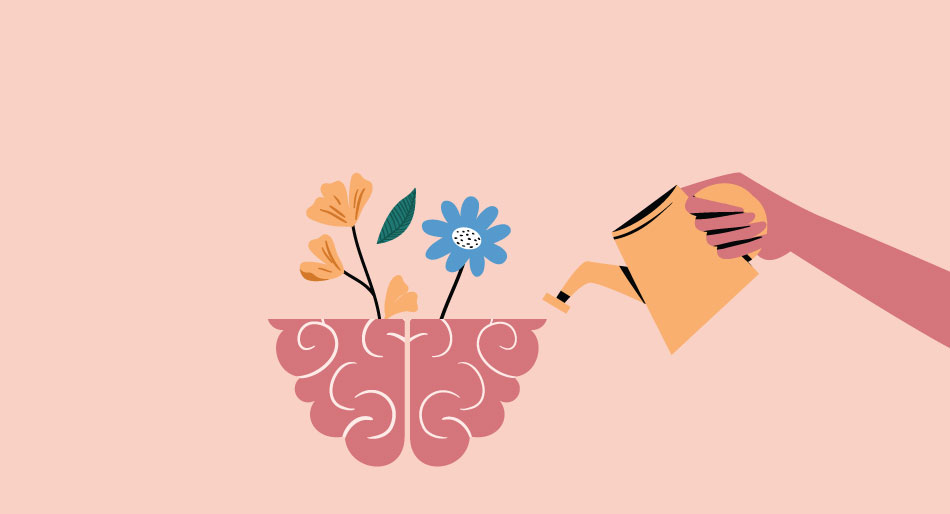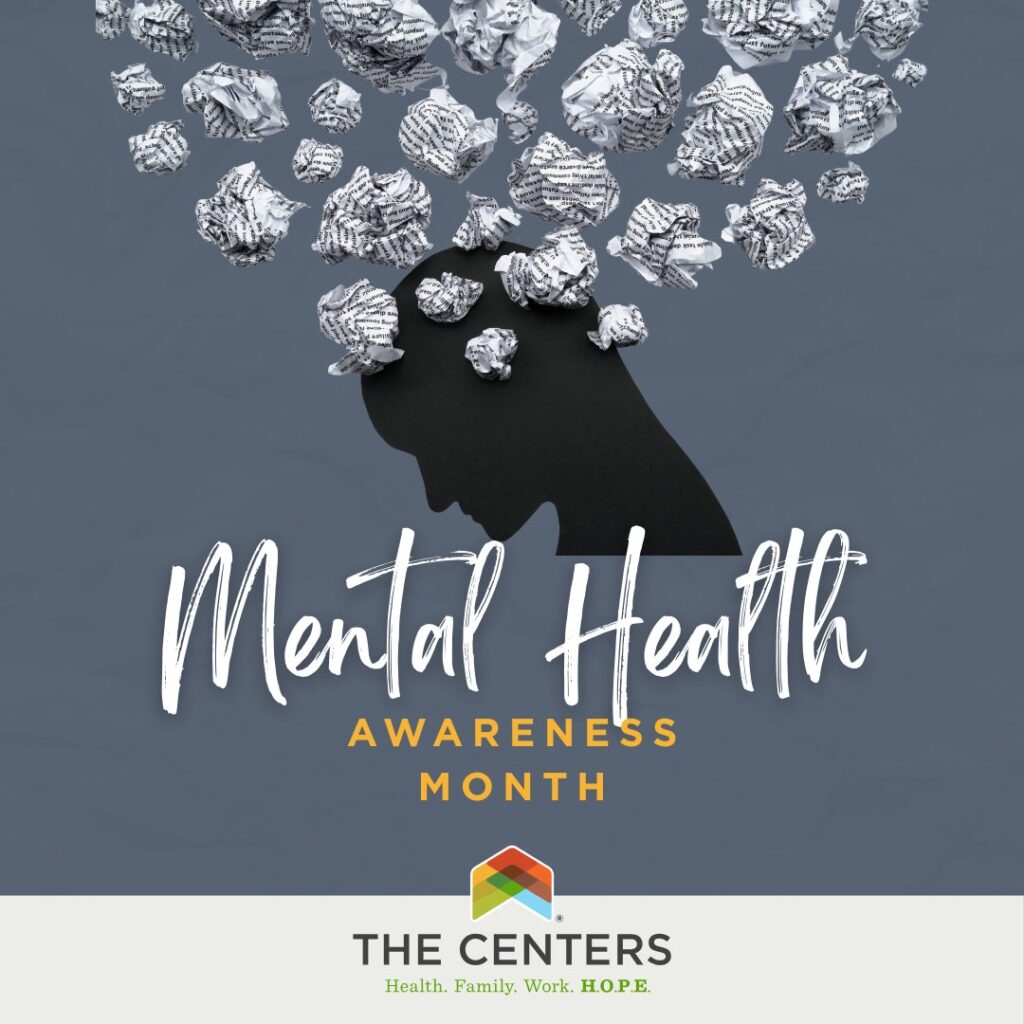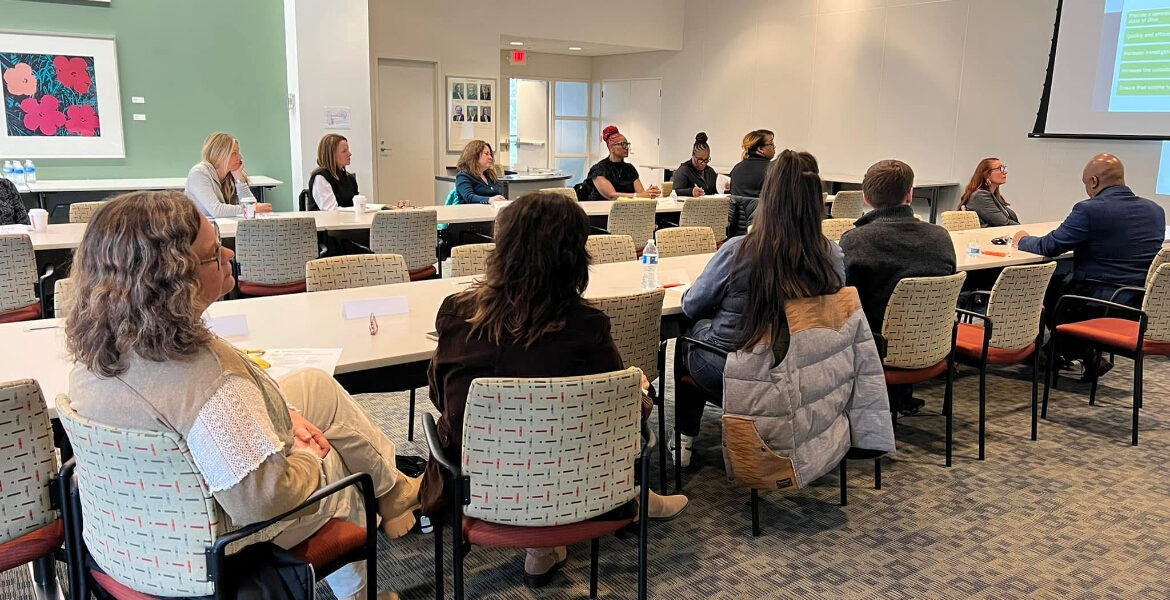At the Collaborative to End Human Trafficking, we believe that supporting mental health is essential—not just for individuals, but for the strength and sustainability of our collective work. If we are not well, our systems and collaborations cannot thrive.
This May for Mental Health Awareness Month, we’re spotlighting the importance of mental wellness in building resilient communities and sustaining the work to end human trafficking.
Why Mental Health Matters in Collective Work
When people work together toward big goals—like ending human trafficking—mental health often becomes the invisible force that can make or break progress. High stress, burnout, and unspoken conflict can quietly erode even the strongest partnerships.
Let’s talk about what it takes to care for ourselves and one another, so that we can continue to show up with clarity, compassion, and endurance.
Ways We Can Build Resilience Together
1. Recognize Burnout
Why it matters: Burnout is a state of chronic physical and emotional exhaustion caused by prolonged stress and overwork. Recognizing the signs early and implementing preventive strategies is crucial for maintaining mental well-being.
Resources:
The Trauma Stewardship Institute – Trauma Stewardship: An Everyday Guide to Caring for Self While Caring for Others.This book is written for anyone who is doing work with an intention to make the world more sustainable and hopeful—all in all, a better place—and who, through this work, is exposed to the hardship, pain, crisis, trauma, or suffering of other living beings or the planet itself.
Medical News Today – Preventing Burnout: 7 Strategies and When to Seek Help. Discusses effective strategies to prevent burnout and guidance on when to seek professional help.
2. Address Conflict Openly
Why it matters: Unresolved workplace conflicts can lead to stress, decreased productivity, and mental health challenges. Addressing conflicts constructively fosters a healthier work environment.
Resources:
Harvard Business School – 5 Strategies for Conflict Resolution in the Workplace. Explores effective conflict resolution strategies to maintain a positive workplace dynamic.
TED WorkLife Podcast – The Science of Productive Conflict by Adam Grant – embracing task-based conflict while avoiding personal clashes can strengthen collaboration and drive innovation.
PositivePsychology.com – 14 Conflict Resolution Strategies for the Workplace. Offers a comprehensive list of strategies to manage and resolve workplace conflicts effectively.

3. Create Supportive Cultures
Why it matters: A supportive workplace culture promotes employee well-being, reduces stress, and enhances overall productivity.
Resources:
Mental Health America – How Can We Create a Supportive Workplace Culture? Discusses the role of leadership in fostering a mentally healthy workplace environment.
Mind Share Partners – Creating Mentally Healthy Workplaces. Offers research-backed strategies and training to help organizations build inclusive, mentally healthy workplace cultures through leadership development, policy change, and open dialogue.
4. Think Long-Term
Why it matters: Long-term mental health sustainability in the workplace involves proactive strategies that support employees’ well-being over time, leading to increased resilience, productivity, and retention.
Resources:
U.S. Surgeon General – Framework for Workplace Mental Health & Well-Being. This comprehensive guide outlines five essentials for fostering a mentally healthy workplace, including protection from harm, connection and community, work-life harmony, mattering at work, and opportunities for growth.
Harvard Business Review – 3 Ways to Build an Organizational Culture That Supports Mental Health. Explores strategies for organizations to support employee mental health through cultural initiatives.

What Our Local Partners Are Doing
Organizations like The Centers and the ADAMHS Board of Cuyahoga County are uplifting mental health this month and every day.
At The Centers, the message is clear: your mental well-being matters every day. Everyone deserves access to care that is compassionate, culturally informed, and rooted in healing. Visit thecentersohio.org/behavioral-health to learn more.
ADAMHS Board reminds every Cuyahoga County resident that support is always available. Need to talk to someone? Call the 24/7 Crisis & Referral Hotline at 216-623-6888 or visit adamhscc.org to explore services and resources near you.
In The News
This month, The Land profiled Dr. Rachel Lovell—an integral partner in our community’s fight against human trafficking. The article, written by journalist Christopher Johnston, spotlights Dr. Lovell’s leadership of the Criminology Research Center (CRC) at Cleveland State University, a powerful yet often overlooked resource in addressing gender-based violence.
Through her partnership with the Collaborative to End Human Trafficking, Dr. Lovell is helping to build a local infrastructure for understanding the true scope of trafficking in Cuyahoga County. Her research not only supports survivor-informed policy change but also strengthens our region’s ability to prevent and respond to exploitation through data, analysis, and cross-sector collaboration.
You can read the story here: How one Cleveland professor’s innovative research is fighting sexual assault around the nation
We’re grateful to everyone who supports this work—from partners and practitioners to donors and advocates. Thank you for being part of a community that values not just the mission to end human trafficking, but the people behind it.
Wishing you peace and strength this May and beyond.
Last modified: May 15, 2025


